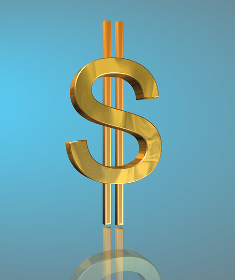If I asked people to complete this sentence: It all comes down to _____________. What do you think the answer would be? That M word is my guess because it seems like most of life often comes down to money, doesn’t it? Well, I suppose money and time, and lately as I get older, I’ve noticed it is also who you know…and that is all pretty depressing. This has been at the forefront of my mind more than usual because recently, two activities that my children participate in probably will not exist due to, you guessed it, money! This post is not a plea for those dollars or to try and get support for my causes, it is just my ongoing observation that life, in the U.S. and most of the world, is dependent upon that bottom dollar. People do all sorts of things for money that they most likely wouldn’t under a different way of life – they work countless hours, they sell their bodies or others, they scam or mark-up products in unfair ways, they lie, all for this thing – money.
And what does money get us in the end? Well, in the case of my kids’ cut programs they would get sports and enrichment, but for others, what is it about money that everyone wants to accumulate? More stuff I suppose: the better car, the nicer house, the extravagant vacation, the latest phone, or the coolest grill (and I’m not above wanting some of those things; personally, I would like a boat). And then what? We get those things, we’re momentarily happy with them, then inevitably, there is something else out there that we need or want. Most people (again, in the U.S.) have reached a level of comfort where they don’t worry about finding food or basic healthcare, most of us are in positions that allow us to live comfortably, without the concerns about tuberculosis or a high infant mortality rate. W e’re lucky and fortunate; and yet, we still want more. And when we get more, well then, we usually still want more. Not often do we see people willing to “give more;” instead it’s to “get more.”
e’re lucky and fortunate; and yet, we still want more. And when we get more, well then, we usually still want more. Not often do we see people willing to “give more;” instead it’s to “get more.”
“Pharma Bro” is a recent example of accumulating more for the sake of having more, or maybe for him it’s having the most. Martin Shkreli was in the news because he was convicted of securities fraud. He lied to investors in order to make-up funds, supposedly, for a bad bet he made. This is wrong and unjust, obviously. What he is most known for, however, is becoming CEO of a pharmaceutical company and jacking up the price of a drug (often used for HIV patients) from mere dollars per pill to $750 per pill, without any good reason that anyone can tell except for one – to make money, lots of it. And what does he do with this money? Does he feel more important and successful because he has it? Probably, because many interpret money to equal success; and unfortunately, the more you have, the more power you hold. And now the guy will be spending that money, if not his time, digging himself out of this hole he created, and he seems to do it with little remorse.
What does that mean for middle class kids who can’t continue in a sport or learn the instrument they want to play? Who knows, maybe nothing. But if we weren’t always trying to “come up with the money” to pay for all of these programs, or needing and wanting the latest possession, would things be different? Would future generations grow up to have less stressful lives, those in which they didn’t have to constantly worry about how to pay for things or how to retire comfortably (even when it’s fifty years away)?
My guess would be yes, but there is no easy way out of the system we have created, supposedly in which we are all equal (monetarily or otherwise). I’ll let you know how it’s going after my family and I move to a tribal society and try to trade plastic trinkets for food and, of course, the biggest hut on the block.
